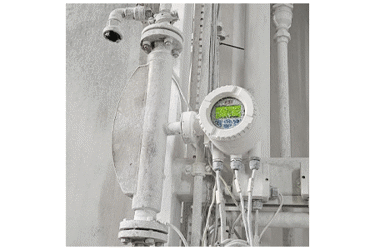Coriolis Meters For CaCO3 Measurement: The Right Answer To A Tough Challenge

Calcium carbonate (CaCO3) is used in everything from agriculture to pharmaceuticals, but the most common way of manufacturing this everyday chemical presents a tricky measurement challenge, because it involves precipitation to form a course, abrasive slurry. Not only can the suspended solids cause excessive wear, but the density of the slurry can vary, which makes it harder to get reliable mass flow readings.
ABB’s CoriolisMaster systems outperform competing technologies to provide a durable, reliable, and accurate measurement solution for calcium carbonate slurries.
Coriolis meters work by measuring the flow of a fluid through an oscillating tube. They rely on the Coriolis effect, which arises from Newton’s second law of motion (Force = Mass x Acceleration). As the fluid passes through the vibrating tube, it generates a tiny twisting force in proportion to the mass flow rate.
This, in turn, creates a measurable ‘wobble’ in the way the tube vibrates, and this can be used to measure not only the mass but also the density of the fluid passing through the meter.
Get unlimited access to:
Enter your credentials below to log in. Not yet a member of Water Online? Subscribe today.
